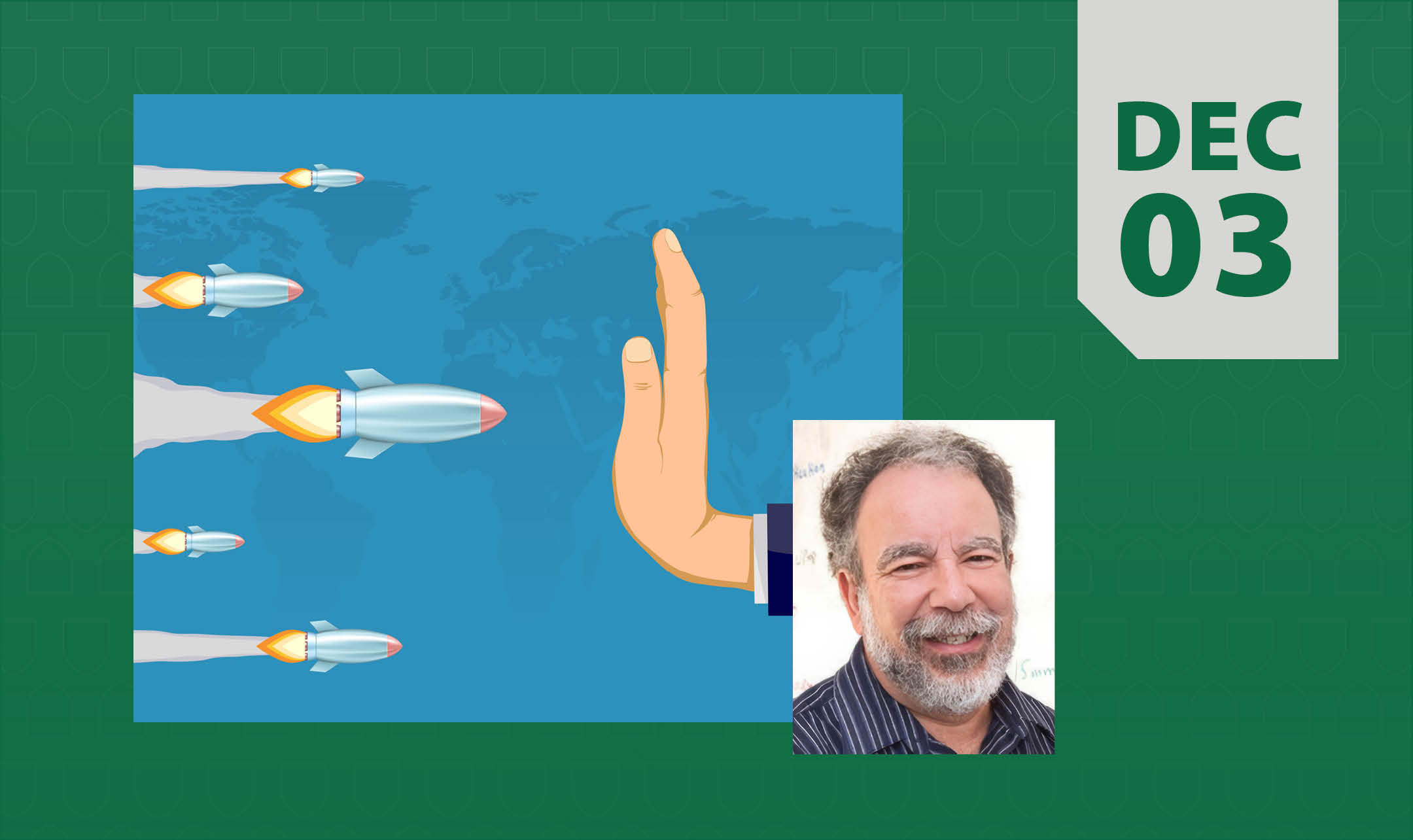
How to Avert the Coming Arms Race
Princeton University professor Dr. Robert J. Goldston (PhD) discusses how to bring stability to a dangerous age
Date: Tuesday, Dec. 3
Time: 3:30–4:30 pm
Location: Physics Building Room 103 (livestream viewing) and online via Zoom
Free and open to the public | Refreshments in Physics 177 at 3 pm
About this event
China, Russia, and the United States are ramping up their nuclear weapons capabilities in a replay of the Cold War. We survived the nuclear confrontation between the U.S. and the Soviet Union largely by luck. The close calls of the Cuban Missile Crisis in 1962 and the War Scare of 1983 frightened leaders in both countries, and led to landmark arms control and arms reduction agreements. Intervention by scientists and the public played a major role. Triggered by the U.S. withdrawal from the Nixon-era Anti-Ballistic Missile (ABM) treaty, Russia and China are deploying new weapons to circumvent U.S. ABM capabilities, while the U.S. is modernizing its land, sea, and air-based nuclear weapons. Here I describe four major elements of a possible initiative to turn around this situation and assure strategic stability, while reducing nuclear arsenals. 1) Limit Ballistic Missile Defenses, 2) Eliminate silo-based intercontinental ballistic missiles, 3) Ban sub-strategic nuclear arms in Europe, and 4) Ban nuclear-armed sea-launched cruise missiles. This talk is sponsored by the Physicists Coalition for Nuclear Threat Reduction, physicistscoalition.org.
Robert J. Goldston is a Professor of Astrophysics at Princeton University. He received his B.A. in Physics from Harvard University, and his Ph.D. in Astrophysics from Princeton University. He was director of the Princeton Plasma Physics Laboratory (PPPL), 1997 – 2009. He is Associated Faculty with the Program on Science and Global Security, and was acting director in Spring 2015. Goldston won the American Physical Society “Excellence in Plasma Physics” award in 1988 and chaired the American Physical Society Physics Policy Committee 2007–2009. He won the Fusion Power Associates Leadership Award in 2001, the Nuclear Fusion “Most Outstanding Paper” prize for 2012, and was named a “Leading Global Thinker” by Foreign Policy Magazine in 2014. He is a long-time U.S. representative on the ITER Science and Technology Advisory Committee. He serves on the board of the Council for a Livable World.
This seminar is hosted by the University of Saskatchewan Department of Physics and Engineering Physics.


